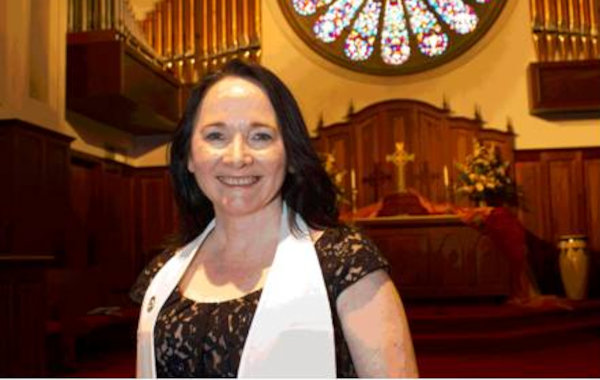With roots in the New Testament, Deaconesses are now an order of United Methodist Women.
Modern deaconesses and home missioners, like German deaconesses who served after World War II, are qualified in their professions, said the top executive of United Methodist Women.
There are 160 active deaconesses and home missioners in the U.S. and about 400 in the Philippines, Harriet Olson said. Home missioners are men. There are 108 retired deaconesses in the U.S.
And, in 2016, General Conference recognized deaconesses and home missioners as an order. Members are consecrated, but unlike deacons, they are not ordained. The order is part of UMW.
“Deaconesses trace all the way back to Phoebe in the New Testament,” Olson said.
“Since 1998, I had felt God calling me to Haiti to educate myself on systemic poverty and to become a ‘different kind of missionary.’ When I co-founded Haitian Artisans for Peace International (HAPI) in 2007, I asked people to consider new approaches to equip and empower. As my ministry in Haiti grew, I began to experience a desire to make a deeper commitment to The United Methodist Church — for work outside the walls of the church. I read that UM Deaconess’ are laywomen ‘called by God to be in a lifetime relationship in The United Methodist Church for engagement with a full-time vocation in ministries of love, justice, and service.” I read the history of these women who, since 1888, “sought to improve the lives of those affected by extreme poverty and that the deaconess’s goal was to live as Christ did, in total service to the community.’ I was HOME.” ~ Valerie Mossman-Celestin
Phoebe is mentioned in Romans 16:1-2 by Paul, who entrusted her to deliver his Epistle. “I commend to you our sister Phoebe, a deacon of the church in Cenchreae,” Paul writes.
In the U.S., deaconesses originally lived in community and pledged not to marry, but that changed in the 1950s, Olson said.
That change didn’t happen in Germany.
The Rev. Lothar Elsner, president of Bethanien Diakonissen Foundation (Bethany Deaconess Foundation) — a health care company connected with The United Methodist Church in Germany — said there was an intensive discussion about the future of deaconess communities in Germany about 50 years ago. While some communities in other denominations opened up to allow marriage and accept men, he said that was not true of the Methodist community in Germany.
“Methodist deaconesses have adhered to the old rule of ‘women’ and ‘celibacy.’ They did not want to believe that this model had its time when women could only work that way,” Elsner said.
There were about 1,000 deaconesses in Germany 100 years ago, he said. Today, there are about five deaconesses in active service at the Martha Maria Hospital in Nűmberg and Bethesda in Wuppertal. There are about 110 deaconesses in Germany today, mostly retired, he said, although some small communities of deaconesses still do social work in their neighborhoods.
The Deaconess and Home Missioner community helped me discern that my passion for and interest in religious diversity and interreligious dialogue is a calling. I feel called to explore the relationships between religious traditions and teach others to work across religious boundaries to improve our world. My Christian faith and my identity as a United Methodist led me to this work, and the Deaconess and Home Missioner community acknowledged the validity of my calling. These inspiring women and men provide support as I work to develop resources to help Christians engage the reality of religious diversity. They have offered opportunities to teach as well as prayers and encouragement. ~Anne Hillman
The movement really began in the 1830s in the Lutheran church to create opportunities for women to live in community and get an education in professions, Olson said.
Modern deaconesses and home missioners serve in many roles, from chaplains to environmental engineers, but they no longer live in community in the U.S. or the Philippines, Olson said.
“Like any other calling, the motivations are as varied as the people,” Olson said.
As with deaconesses of earlier times, the modern deaconesses and home missioners feel “called to make a life following Jesus,” but want to serve outside the church, she said.
They are called to love, justice and service, but ordination is not really their calling, she said. In the Philippines, the deaconesses do a lot of work with indigenous people and have spoken out strongly on justice issues, Olson added.
Last Updated on November 1, 2023

